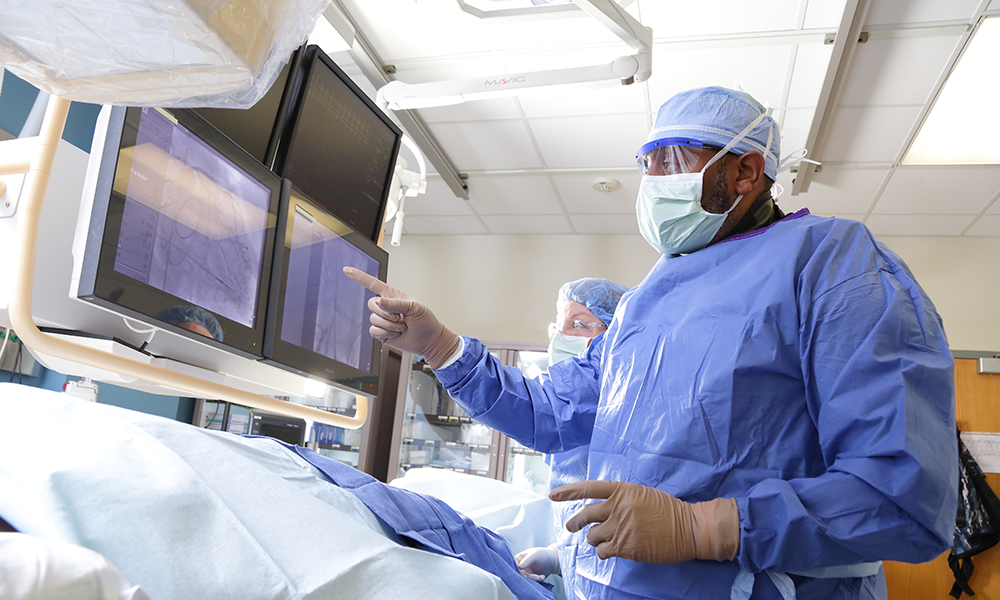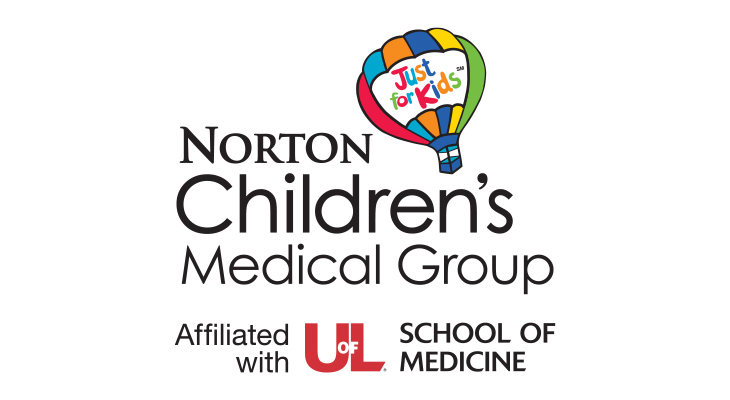The Norton Children’s Simulation for Pediatric Assessment, Resuscitation and Communication (SPARC) Program educates pediatric clinicians in crisis teamwork skills, procedural skills, pediatric physiology and the delivery of difficult news to patients and families. Physicians, nurses, respiratory therapists and pharmacists participate in these sessions.
Sessions are conducted in multiple locations around the hospital, including the emergency department, operating room and recovery unit, “Just for Kids” Critical Care Center and all pediatric floors. A typical session starts with an introduction to the skills that will be needed for that particular situation. Critical events are simulated using one of two high-fidelity patient simulators. After each simulation, participants are debriefed by program faculty and given time to observe their performance via video recording. During this time they reflect on their actions and discuss development strategies to address any issues.
Family interactions are portrayed using standardized patients as part of the communication skills arm of SPARC, known as the Program for the Approach to Complex Encounters (PACE). Here, clinicians learn important techniques for dealing with the delivery of difficult news to patients and their families. Video-assisted debriefings allow participants to deconstruct and reflect on their experiences. This helps them understand ways to approach such conversations more effectively.
Other SPARC activities include procedural training for pediatric residents and nurses, and educational outreach to local and regional emergency departments. The SPARC Program participates in the INSPIRE Pediatric Simulation Research Collaborative.
Those interested in learning more about the program can contact Amy L. Hanson, M.D., at (847) 917-0787 or at amy.hanson@louisville.edu.
The simulation program is funded by the Norton Children’s Hospital Foundation and has received grants from the University of Louisville School of Medicine Department of Pediatrics, WHAS Crusade for Children and the Kentucky Hospital Association.
SPARC Simulation Program Goals
- Train health care professionals in the management of a broad variety of medical conditions in pediatric patients, including high-risk and/or acuity conditions
- Rehearse effective teamwork principles and communication during medical events and/or procedures
- Optimize the health care system by identifying and correcting safety threats and improving the efficiency and quality of care
- Generate new knowledge and scholarship
SPARC Simulation Program Leadership
Senior Advisors
Aaron W. Calhoun, M.D.
Megan C. Herndon, R.N.
Adjunct Advisor
Vicki L. Montgomery, M.D.
Director
Amy L. Hanson, M.D.
Nursing Director
Erin R. Kirk, R.N.
Simulation Operations
Assistant Director of Simulation Operations
Megan B. Laniewicz, M.D.
Nursing Lead
Susan M. Webb, APRN
Simulation Quality
Assistant Director of Simulation Quality
Mary K. Sandquist, M.D.
Nursing Lead
Rebekah Mulloy, R.N.
SPARC Unit-based Simulation Teams
Cardiac Intensive Care Unit Simulation Team
Physician Simulation Facilitator
Mary K. Sandquist, M.D.*
Nurse Simulation Facilitators
Lauren Curry, APRN
Dawn Williamson, R.N.
Communication Simulation Team (Focus on Relational Crisis Education)
- Physician Simulation Facilitators
Kelly A. Lyons, D.O.
Eleanor B. Peterson, M.D.*
ECMO Simulation Team
Physician Simulation Facilitator
Jamie M. Furlong-Dillard, D.O.*
ECMO Specialist Simulation Facilitators
Jacquelyn Finks, RRT
John W. Hardin, RRT
Amy L. Johnson, R.N.
Bradley Oelkers, RRT
Teka Siebenaler, RRT*
Dawn K. Williamson, R.N.
Emergency Department Simulation Team
Physician Simulation Facilitators
Amy L. Hanson, M.D.
Tara M. Kopp, M.D.*
Megan B. Laniewicz, M.D.
Nurse Simulation Facilitators
Cara A. Lowery, R.N.
Jill Masden, R.N.
EMS Simulation Team
Physician Simulation Facilitator
Beth A. Spurlin, M.D., Ph.D., MBA
Nurse Simulation Facilitator
Jaclyn Gerard, R.N.
Hematology/Oncology Simulation Team
Physician Simulation Facilitator
Recruiting
Nurse Simulation Facilitators
Taylor C. Bergman, R.N.
Heather N. Hartlage, R.N.
Inpatient Unit Simulation Team
Physician Simulation Facilitator
Recruiting
Nurse Simulation Facilitators
Barbara J. Furey, R.N.
Milly Green, R.N.
Rebekah Mulloy, R.N.
Neonatal Intensive Care Unit Simulation Team
Physician Simulation Facilitators
Shannon K. Evans, M.D.
Keri A. Marques, M.D.*
Nurse Simulation Facilitator
Leanna G. Magner, R.N.
Outreach Simulation Team
Physician Simulation Facilitator
Karen L. Orman, M.D.*
“Just for Kids” Transport Team Simulation Facilitators
Donna M. Callahan, R.N.
Pennie L. Crady, R.N.*
Pediatric Intensive Care Unit Simulation Team
Physician Simulation Facilitators
Aaron W. Calhoun, M.D.*
Mary K. Sandquist, M.D.
Nurse Simulation Facilitators
Morgan Fryman, R.N.
Ashley N. Johnson, R.N.
Susan M. Webb, APRN
Procedural Training Simulation Team
Physician Simulation Facilitators
Tara M. Kopp, M.D.*
Kelly A. Lyons, D.O.
Keri A. Marques, M.D.
Nurse Simulation Facilitator
Nursing support consistent with content expertise
Surgical Services/Anesthesia Simulation Team
Physician Simulation Facilitator
Recruiting for physician and/or CRNA lead
Nurse Simulation Facilitators
Kaley Davidson, R.N.
Caroline Stilz, R.N.






